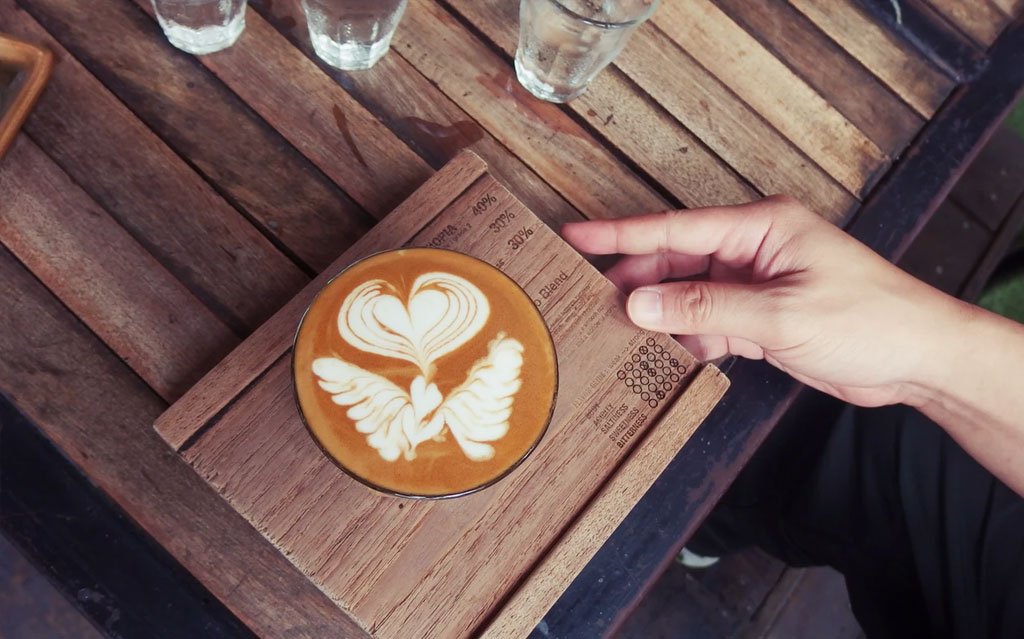This week we're featuring a new concept from the folks at Marcell Coffee Projects and Roasting Club in Kansas City that encourages connection in this uncertain time. It's called Have a Nice Coffee, a “new series of exceptional offerings” with a twist. “Ultimately we created a postcard set for 4 different limited coffee releases and instead of printing on the bag the art is on a 3×5 removable postcard,” explains Marcell founder Christopher Oppenhuis. “The idea is to promote connectivity and supporting the US postal service during this time.” Marcell quickly sold out of the first coffee in the series and released the second offering just this week. We spoke with Oppenhuis digitally to learn more.Tell us more about Marcell Coffee! I started Marcell as a platform to continue my relationships centered around the specialty coffee supply chain and to create an alternative to the traditional roaster to retail model through tailored private-label branded offerings and custom roasting for brand identities. My specialty career started as an owner of the Star Lounge Coffee Bar in Chicago and since then I have worked retail and behind the scenes cooking beans for Dogwood, Gaslight, Halfwit and most recently as Director of Coffee for Thou Mayest in Kansas City.
Before we get into the HANC series, we want to know, how are y'all doing? Generally speaking, things are looking up but not without first having to alter our model and trajectory as a new roasting business. At the time the pandemic hit we had only been operating for six months and aside from our wholesale clients we ultimately did not have as much to lose as some of our longer-established peers. With that being said we only developed our own line of retail offerings to supply friends and family with some of our branded offerings at home during the initial shutdown and thankfully since May we have been growing our private label program in new ways to better benefit our clients who are also having to pivot their own models. Additionally, as a neutral service based operation, we have organically found opportunities to become a resource to our local community during this time, and through our partnership with BaristaKC, we have been holding a weekly mercantile featuring goods made by coffee industry workers. This was developed to initially benefit out of work baristas during the shutdown and more recently has evolved to raise funds for local social justice organizations in our city as well as an upcoming micro-grant fund.
You recently launched Have a Nice Coffee, a “new series of exceptional offerings.” Volume 1 featured a coffee from Finca Beatriz in Guatemala—please tell us about this offering. I was lucky to have the privilege of traveling to Guatemala with my importing partners at Anthem Coffee Imports and another Midwestern roasting outfit Windmill Coffee Roaster Australia in late February when things were just starting to shift globally Covid-19 wise. While there we were hosted by our exporting partners at Dinamica and were primarily making some regional profile selections for our portfolio while our cohorts were specifically seeking micro and single producer lots for their offerings list. Long story short the fellas at Windmill ended up making a beautiful selection from Finca Beatriz in the Huehuetenango region for their customers and when the option to secure a couple of bags opened up in July we jumped at the opportunity. Generally in our model, we source and roast to a spec for our customers and in this case we ended up creating our own outlet for small amounts of exceptional coffees to be showcased which led us to create our Have a Nice Coffee series. What's the inspiration behind the postcard? All four releases in the series are in fact 3 x 5 digitally printed postcards and we are also offering a set of all four postcards on their own. The original intention was to promote connectivity between folks in an analog and meaningful way during these times of isolation as well as be able to offer a piece of artwork that wouldn't end up in the trash or recycle bin with the rest of the packaging. Similarly to most other small businesses during this time we came to rely heavily upon the US Postal Service to offset our distribution model and even more recently as the government has been waging its own war against

